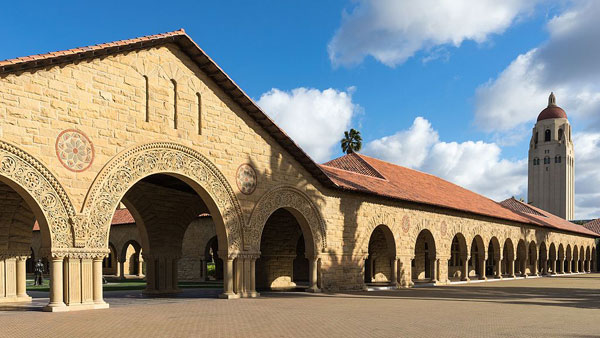
April 26, 2019; Chronicle of Higher Education
What kind of an argument can an institution of higher learning put forward to justify cuts when they have a massive and growing endowment? If that school is Stanford, which, at $26.5 billion dollars, has the world’s third-largest endowment, how does it frame the need to cut the $1.7 million that subsidizes its university press?
Stanford, according to the Form 990 from 2017, brought in $237 million in revenue from its investments. And yet, Stanford is cutting the subsidy it provides to its scholarly publisher, Stanford University Press, which with its staff of 35 publishes work in anthropology, sociology, business, religion, and 10 other disciplines.
The elimination of the subsidy was announced at a Faculty Senate meeting and was greeted with the expected mix of indignation and confusion. “This is a reprehensible moment for one of the richest universities in the world and a diminution of intellectual inquiry. It really boggles the mind,” said Woody Powell, a Stanford sociology professor, a former member of the press’s editorial board, and a current adviser to it.
Persis Drell, the provost of Stanford, discussed the subsidy cut at a meeting of humanities and social-science chairs. The amount, which had been consistent the previous three years, might be better spent on graduate fellowships, Drell suggested. The department chairs observed that it would only cover three fellowships—not much bang for the buck. Repeating the position in a written statement, the provost “noted that it will be a very tight budget year, with an incremental payout of 2.1 percent on the endowment—which is below anticipated inflation.”
The statement went on to say, “The budget group made a very significant allocation to the press of approximately $1.7 million annually for three years in one-time funds, with the assurance from the press that this would be a bridge to a self-sustaining future.”
The director at the Stanford University Press, Alan Harvey, and an editorial-board member, law professor Richard Thompson Ford, stated that they, along with others involved in the press, would like to discuss other funding paths. The university has denied the press the ability to raise dollars as a separate entity from major donors for years. The statement mentioned that the press could utilize “modest philanthropy” to raise money but did not elaborate.
Sign up for our free newsletters
Subscribe to NPQ's newsletters to have our top stories delivered directly to your inbox.
By signing up, you agree to our privacy policy and terms of use, and to receive messages from NPQ and our partners.
Harvey reports that the press, which started the same time as the school, in 1892, brings in about $5 million in revenue with the sale of the 130-135 books it publishes annually, and older titles.
“I would put it among the very best university presses in America,” said the editorial director of the Johns Hopkins University Press, Gregory M. Britton. “It’s an incredible jewel. It’s every bit the equal of its institution” in the quality and scope of its offerings.
Some large university publishers have their own 501c3s to raise funds separately from the school, and some have significant endowments of their own. In 2016, Princeton University Press had net assets of $137 million. The presses at University of Virginia, Yale, and Harvard have endowments.
David Palumbo-Liu, a Stanford professor of comparative literature, says it is incongruent that a school that does not want to be all STEM—the “MIT of the West”—does not support its notable work in the humanities and social sciences. And, as Palumbo-Liu wrote in an email, the stakes in the Stanford-press standoff are higher than the relatively small dollar figures might convey:
If we follow the logic of the market and wish to use a financial metric, the academy is gone. Presses will publish only profitable books, graduate students will write only profitable dissertations, and tenure will be awarded based on scholarship that is profitable. Reforming a university press under the mandate that it be financially solvent and, by extension, awarding it value based on profit is a direct attack on academic freedom, free inquiry, free speech.
Support letters from the different Stanford departments are already circulating for signatures of those who disagree with the cuts or how the committee arrived at the decision. Perhaps it is time for Stanford University Press to become its own nonprofit.—Marian Conway













